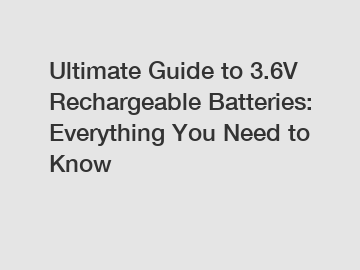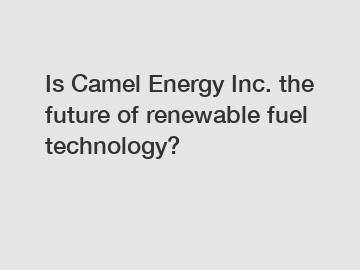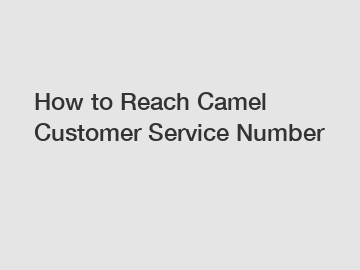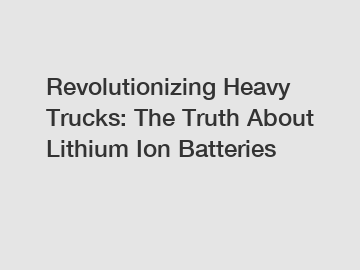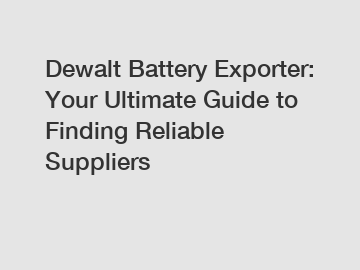How Long Do Solar Batteries Last?
How Long Do Solar Batteries Last?
kete are exported all over the world and different industries with quality first. Our belief is to provide our customers with more and better high value-added products. Let's create a better future together.
The life span of a solar battery determines how long you can store and use excess solar energy before purchasing a replacement. A solar battery's type, depth of discharge, usage and temperature exposure significantly impact how long it can effectively operate in one cycle and how many cycles it can work total.
Understanding how long a solar battery lasts can help you choose the best battery for your home or business property's needs.
Benefits of Solar Batteries
Supplementing your solar panel system with a battery backs your system up when you need additional power. A solar battery stores excess energy from a solar panel system so a home or business property can use it when the sun is not shining. This setup is also beneficial for the environment because it prevents you from using electricity from the power grid.
Installing a solar battery can help you save money on your electric bill because it provides energy on days solar panels absorb less sunlight and at night when sunlight is unavailable. It can also provide your home or business with energy during a power outage.
How Long Do Solar Batteries Last?
The amount of time a solar battery can provide power before needing to recharge depends on its power output, energy storage capacity and the appliances it powers. While most solar batteries do not supply the electricity to power an entire property, a solar battery can effectively power your most important appliances, such as your lights, refrigerator and internet router.
A battery's kilowatt hours (kWh) determine how many kilowatts it can deliver to appliances before recharging. The amount of time it can last depends on each appliance's wattage. Powering appliances with lower wattages allows a battery to operate longer than it would if it were powering appliances with higher wattages. Additionally, powering fewer appliances allows it to operate longer before needing to recharge.
How Long Is a Solar Battery Life Span?
The life span of a solar battery is around 10 to 15 years. Most solar battery warranties are for 10 years, but a battery may remain in good condition and last longer than its 10-year warranty. A solar battery's exact life span depends on the following factors:
1. Type of Battery
The battery type a homeowner chooses also affects its life span. Solar battery types consist of the following:
- Lithium-ion batteries: Lithium-ion batteries typically cost more than lead-acid batteries, but they last longer. A lithium-ion battery typically lasts 10 to 15 years.
- Lead-acid batteries: Lead-acid batteries cost less than lithium-ion batteries, but their typical life span is four to eight years.
Lithium-ion batteries have a higher upfront cost than lead-acid batteries, but they provide a greater value. You can expect to replace lithium-ion batteries much less frequently than lead-acid batteries, saving you money long-term.
2. Usage
The number of times you use a battery significantly impacts how long it lasts. Similar to a battery, a solar battery's life span lowers slightly with each usage cycle. A battery's storage capacity decreases each time the battery drains, and each cycle slightly increases the frequency you need to recharge a battery.
The ability to withstand more discharge cycles is one reason why lithium-ion batteries last longer than lead-acid batteries. A lithium-ion battery can continue to operate effectively after more discharge cycles than a lead-acid battery.
Limiting battery usage allows it to maintain storage capacity and extend its life span. Using half of a battery's capacity each day allows a battery to last longer than draining its full capacity daily.
3. Discharge
A solar battery's depth of discharge (DoD) determines how much of its capacity it can discharge without taking on damage or shortening its life span. For example, a lithium-ion battery's DoD is typically around 90%, allowing it to discharge 90% of its capacity without degradation. Some solar batteries contain built-in protection to prevent them from discharging 100% of their capacities.
4. Exposure
Extreme weather and temperatures can shorten a solar battery's life span. Environmental conditions affect lithium-ion batteries less than lead-acid batteries, but protective storage can benefit both battery types.
While a lithium-ion battery can handle temperatures between zero degrees Fahrenheit and 90 degrees Fahrenheit, a lead-acid battery performs better and lasts longer when property owners store it between 40 and 80 degrees Fahrenheit. Installing energy storage in a temperature-controlled space such as a garage can help extend a battery's life span.
5. Maintenance
Solar batteries require minimal maintenance, but monitoring your battery can help it last as long as possible. Checking your battery's performance helps prevent damage so it can work properly over its entire life span.
Do Solar Panels Outlast Batteries?
Solar panels last longer than solar batteries do. Panels typically last about 25 to 30 years, and lead-acid batteries last between four and 15 years. Whether you use lithium-ion batteries or lead-acid batteries, you will need to replace your battery at least once to store energy throughout your solar panel system's entire life span.
How to Maintain or Extend a Solar Battery's Life Span
You can help your solar battery last as long as possible with the following tips:
- Install a high-quality battery: Installing a high-quality solar battery helps you get the best performance and extends the time you can use it before purchasing a replacement. Consider purchasing a lithium-ion battery for the longest use.
- Fully charge your solar battery: Allowing your battery to reach a full charge each cycle increases its longevity. All lead-acid batteries experience sulfation when they charge and desulfation when they are in use. Using an undersized battery bank helps ensure your batteries fully charge each cycle, preventing sulfate buildup and helping your battery remain in good condition for a longer time.
- Prevent a full discharge: Check your batteries to ensure they operate without fully discharging. A battery should only discharge its DoD capacity, so it should always recharge once it reaches this capacity. If you notice that your battery fully discharges, you may need to contact a professional to address damaged wires or cables. Choosing a battery with a low-voltage disconnect feature allows the battery to shut down before it drains completely.
Purchase a High-Quality Solar Battery From 8MSolar
The length of time you can depend on a solar battery largely depends on the type of battery you choose and its quality. 8MSolar offers high-quality solar batteries from brands such as LG and Tesla. The LG Chem features a 9.8 kWh storage capacity, and the Tesla Powerwall features a 13.5 kWh capacity.
These long-lasting batteries can power your home or business at night and during inclement weather to help you save money and reduce your carbon footprint. Contact 8MSolar to learn more about solar batteries and choose the best option to supplement your solar energy system.
Life of Solar Panel Batteries: How Long Do They Last?
But with any new form of innovation comes questions - and when investing in products like solar cells, you want to know exactly what you're getting for your money: what's the duration of your solar battery lifespan? This blog post will take a look at the life cycle of solar panel batteries, from installation through maintenance and replacement.
The sound of savings echoed in the air as solar technology began to revolutionize power concepts worldwide. With a mission to leave lighter footprints on the planet, clean energy sources such as solar panels were becoming increasingly attractive alternatives for many.
A solar battery's lifespan has a lot of variables including solar battery usage, storage temperature of home solar battery units, depth of discharge cycles, etc. However, there are some things you can do to get more out of your solar panel system by prolonging the lifespan of your panels.
Just as solar panels degrade , solar batteries degrade too. Generally speaking, most solar batteries for home use last between about 5 and 10 years. This life expectancy is true for most rechargeable battery types, such as lead-acid and lithium-ion batteries. An average solar battery comes with an expected usage of between 1,000 and 3,000 usage cycles, which is roughly equivalent to 5-10 years.
Factors that affect solar power battery life
Understanding the intricate factors influencing the lifespan of solar power batteries is essential for optimizing stored energy. Here are the key determinants shaping solar power battery life expectancy.
Solar Battery Type
See also:8 Surprising Camel Milk Benefits | Desert Farms | 100% Pure
10 Questions You Should Know about Best Commercial Truck Batteries
Meet Jack Li: The DC Doctor to Trust
How to properly check golf cart batteries
What are the top trends in the automechanika Frankfurt industry?
Why are NiCad rechargeable batteries the best?
How to Choose AGM vs Lithium Car Battery
If you want to learn more, please visit our website What’s a Sealed Lead-Acid Battery.
The battery type you choose for your solar power system is one of the primary factors that affect a solar battery's longevity. Lead acid batteries last around three to four years under normal conditions while Lithium batteries can go on for more than twice as long, lasting up to seven or eight years!
Both Lithium-ion battery and lead acid battery has their own pros and cons, thus it's important to consider your particular needs when determining which battery types are right for you.
Types of solar batteries for your solar system:
Lead acid battery
These are the most common types of batteries used for solar panels' energy storage. Lead-acid batteries are inexpensive and can be discharged deeper but they have a shorter life span than lithium-ion batteries which makes them less reliable over time. These types of batteries often require maintenance like water refilling or equalization charging to maintain their voltage, temperature, etc.
Lithium-ion solar battery:
Lithium ion is one of the newest technologies in home solar energy storage systems. Lithium-ion solar batteries are very safe because there's no risk of explosion even if punctured internally unlike other kinds where you might find yourself with some pretty toxic fumes after an incident!
On top of that it has high deep capability so its lower power draw means you can cycle it more without harming the battery life.
Saltwater Batteries-
These batteries are a relatively new technology and have not been widely used yet. Saltwater batteries are sealed units so there is no maintenance required and they're environmentally friendly because the electrolyte is water!
They also have a long life span of about 20 years making them a good option for those looking for longevity in their solar battery storage system. If high temperatures (over 25°C) and frequent cycling don't sound like great fits for your home then lead acid batteries might be a better choice but if low maintenance costs matter then get yourself some lithium-ion batteries.
How often they are used?
Batteries in home solar systems are generally designed to be used at least once every day for about ten hours but they last longer when used more frequently, as often as 70% of the time (about six to seven hours) daily.
The frequency and duration of use will also affect how long an individual battery lasts so if you're looking to maximize your return on investment (ROI), make sure the solar batteries, specifically the deep cycle batteries get their fair share of work!
Usage Cycle
The usage cycle of your home solar panel system is one of the most important factors that affect battery life. The higher the number of daily cycles you use, the better for your batteries because it means they're getting more work done which leads to longer lives and less replacement costs!
If you can't afford expensive Lithium-ion batteries (which will run about $600 per kWh) don't forget that lead acid options are readily available at much cheaper prices but might not last as long. Also take into account how often each type is used when deciding which battery technology is right for you.
Storage temperature
Temperature is another factor that affects solar panel battery life. Electrolyte in lead acid batteries can freeze at just -20°C, causing severe damage to the internal plates and separators which means you might need to buy new ones or risk not having your system work properly next time! On top of that Lithium-ion batteries operate best between 20-25°C so if it's too cold where you live then stay away from them because they'll be useless during winter months (unless you opt for some saltwater options).
Depth of discharge cycles
Depth of discharge is the measure of how much charge a battery can deliver from a full charge. Batteries that have a higher depth of discharge will last longer than those with lower depths.
For solar panel batteries, it's best to stay below 50% DOD to ensure you get the most life out of your system. You don't want to constantly be at max capacity because that'll wear down your battery pretty quickly and might require more maintenance!
Peak power demand
If you're looking to get the most out of your solar panel batteries then make sure they're properly sized to fit your peak power demand. If there's potential for a situation where more solar energy is needed than what can be provided by solar panels, look into getting some backup generators or other energy storage solutions.
Maintenance
Solar batteries don't need much to keep them alive and kicking. In fact, they're similar in upkeep as your car battery so if you take care of that one then the same principles apply!
All you have to do is make sure electrolyte levels stay strong by checking water levels regularly (if it's a flooded type) or replacing caps/terminals yearly (for gelled). Even though Lithium-ion cells aren't susceptible to sulphation like lead-acid ones, corrosion can still happen over time which leads to reduced efficiency- especially at higher temperatures. So every now and then use a standard multi-meter around terminals for any weird readings because corroded contacts will show up as less voltage than normal when testing with DMM.
It is recommended by the National Renewable Energy Laboratory (NREL) to install solar panels' batteries in a cool, dry place, preferably a garage, where the impact of a fire ( a small, but non-zero threat ) may be minimized. Batteries and components around them should have proper spacing to allow cooling, and regular maintenance check-ups can be helpful in ensuring optimal performance.
Why Camel Power Indonesia is revolutionizing transportation?
Are 3.2V LiFePO4 Batteries The Future?
Are AGM batteries cheaper?
Understanding Exit Sign Illumination Requirements: A Guide
What are electric car batteries made of?
Emergency Lights Battery Replacement: Best Tips to Save Money?
How can Camel residential energy storage revolutionize homes?


